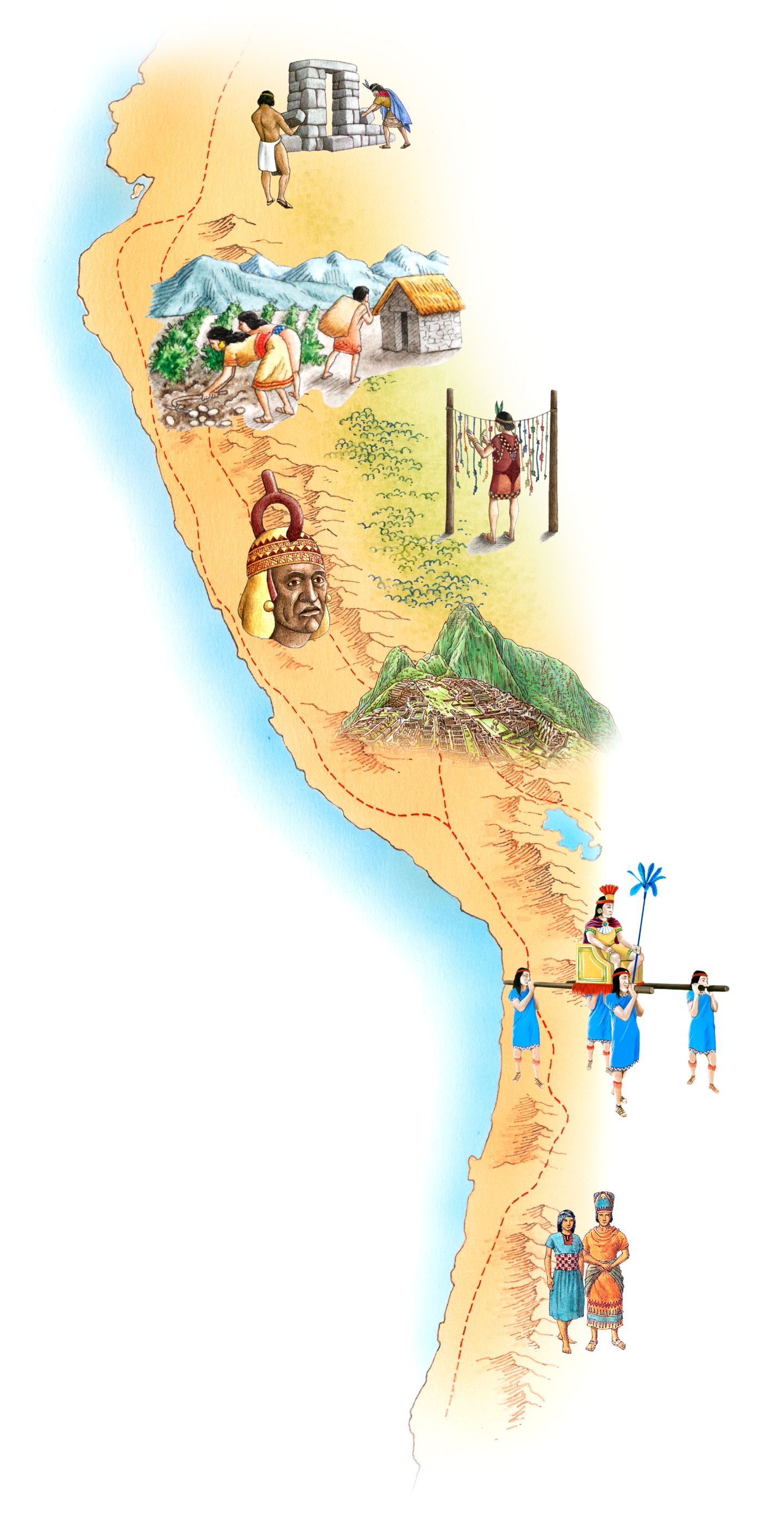
Inca Empire Facts Inca Empire For Kids DK Find Out
Inca. A member of the research team dives into Lake Titicaca, which straddles the border of Bolivia and Peru.

9 to 13 million people were under Inca rule. The Incas didn’t just
The Inka Empire Map of South America showing the location and extent of the Inka Empire, as well as which contemporary countries were part of the empire.

Inca Empire — Freemanpedia
Known as Tawantinsuyu, the Inca state spanned the distance of some 2,500 miles, from northern Ecuador to central Chile, and at its peak consisted of 12 million inhabitants from more than 100.

Pin by Daniel Rondón on Incas y la civilización Andina. Inca, History
4 Day Inca Trail Map The world-famous 4-day Inca Trail to Machu Picchu covers 31.2 miles (50 kilometers) from start to finish. The path is a sacred part of what was an extensive network of Inca footpaths called Qhapaq Ñan, meaning "Royal Road."

Map of the inca Empire (Illustration) Ancient History Encyclopedia
Inca origins date back to the period, in the early centuries of the second millennium CE, when the Wari and Tiwanaku cultures in the Andes region were in decline, and the order that these two states had imposed was falling apart. Numerous small states were struggling for survival or dominance.

Pin by Ring of Fire Research on Inca Inca, History, Map
The three most dominant and advanced civilizations that developed in the Americas prior to the arrival of the Europeans were the Aztecs, the Maya, and the Inca. The Aztec Empire was located in central Mexico. It ruled much of the region from the 1400s until the Spanish arrived in 1519. Much of the Aztec society centered around their religion.
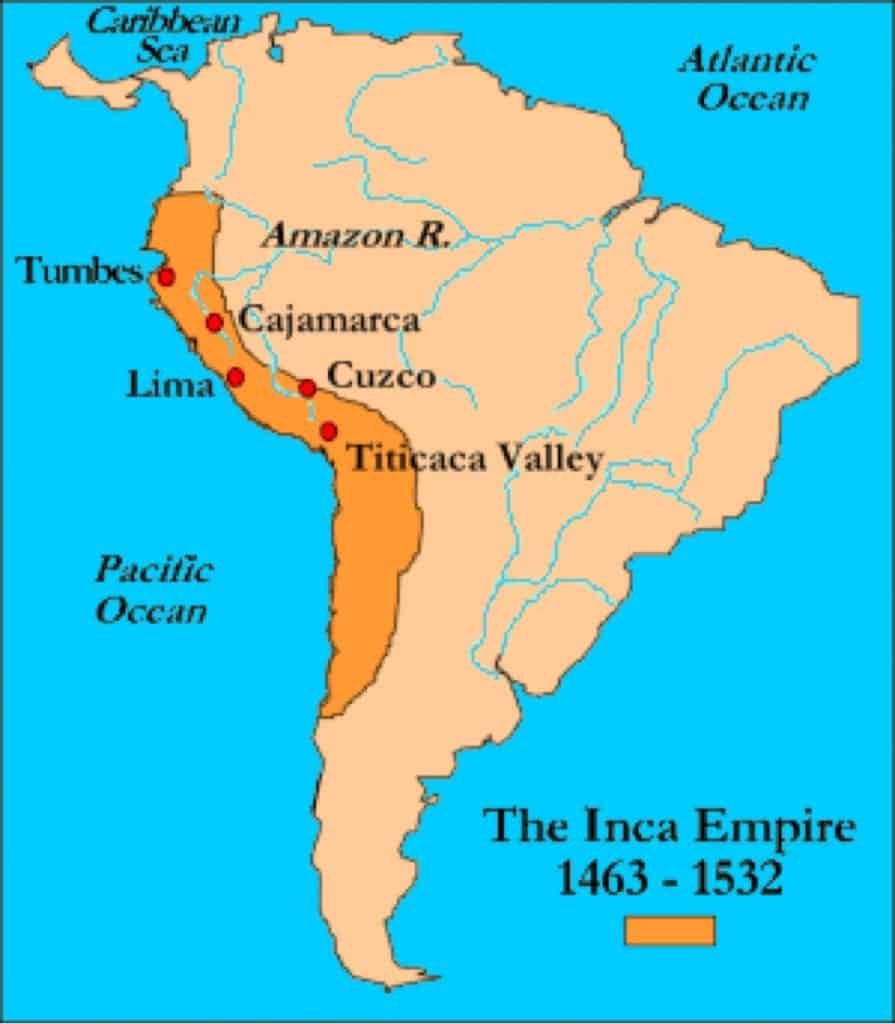
Incas como eram, onde viveram e principais características do império
Inca, South American Indians who, at the time of the Spanish conquest in 1532, ruled an empire that extended along the Pacific coast and Andean highlands from the northern border of modern Ecuador to the Maule River in central Chile. A brief treatment of the Inca follows; for full treatment, see pre-Columbian civilizations: The Inca.
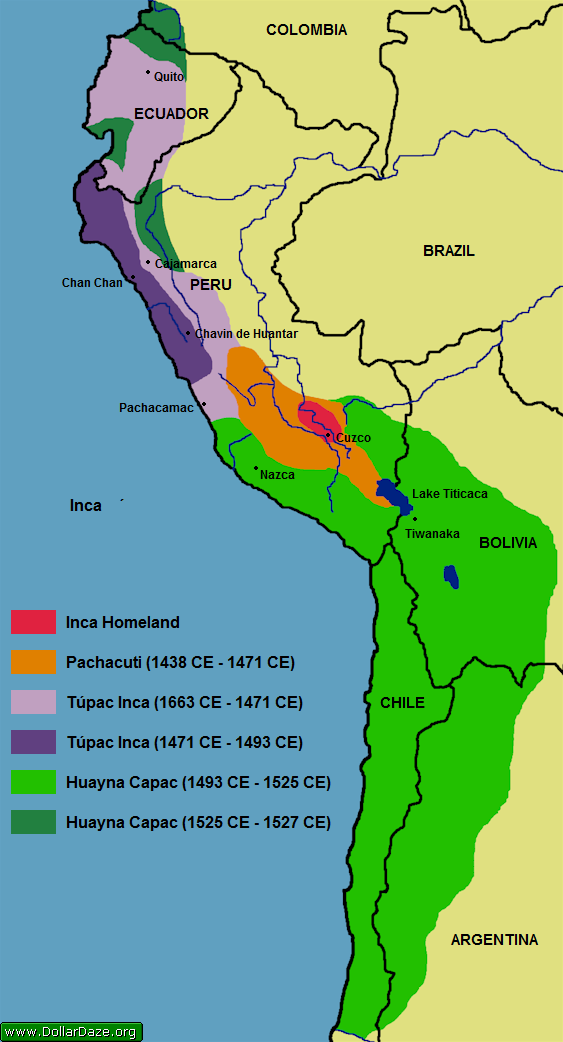
The Inca Empire on emaze
1200 Jan 1 Kingdom of Cusco Cuzco, Peru The Inca, led by Manco Capac (leader of the ayllu, a nomadic tribe), migrate to the Cuzco Valley and establish their capital at Cuzco.
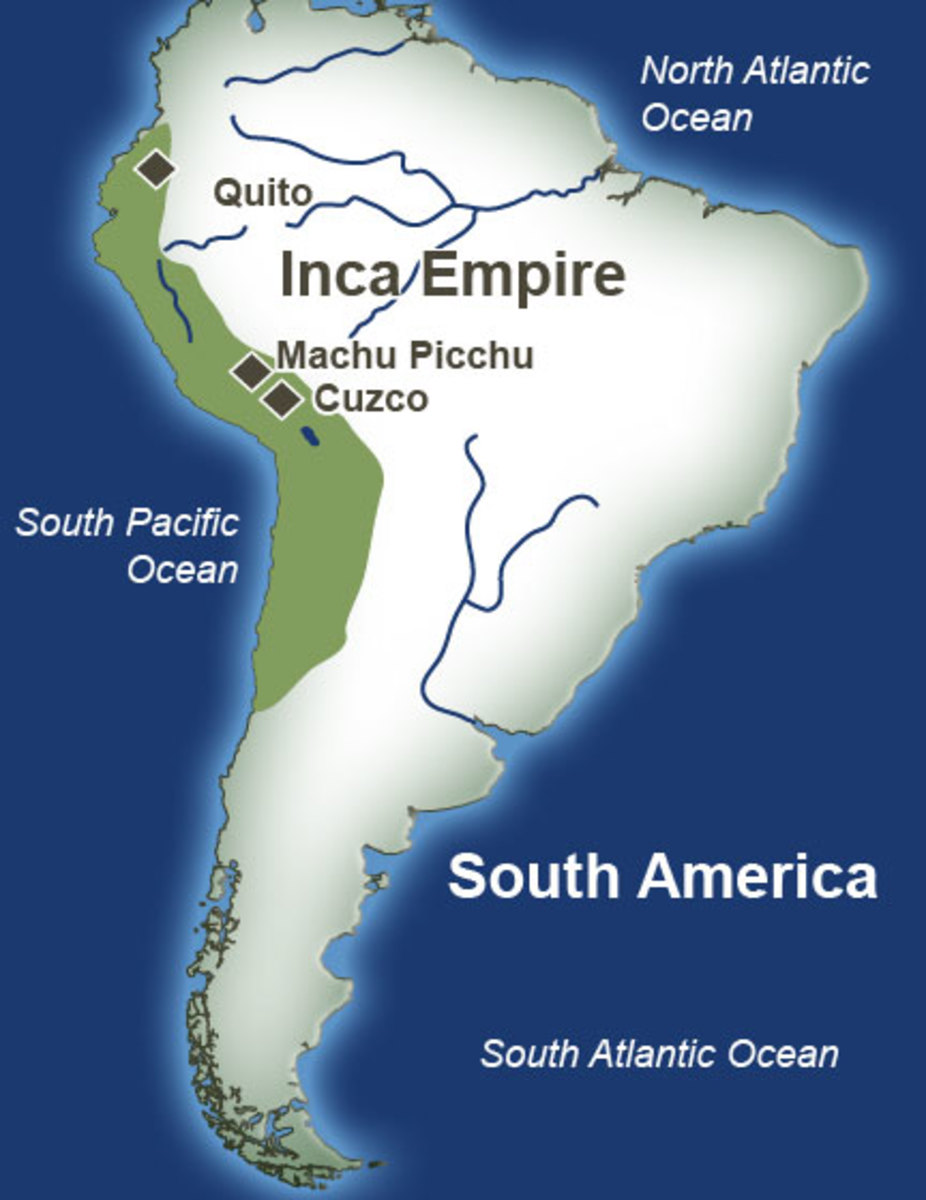
The Death of the Inca Empire a Legendary Civilisation HubPages
History in maps This section holds a short summary of the history [1], illustrated with maps. File:Inka Provinces.jpg Inca Provinces Major cultures in the Late intermediate period (1000-1400 CE) in Peru, 1438 [ [|border|251x400px]]

Map of the Inca Empire in western South America, based on Ogburn (2012
1493 - 1526. Huayna Capac reigns as Inca leader and constructs fortresses, religious temples and roads throughout the empire . c. 1510. The Inca abandon the settlement of Machu Picchu . 1526 - 1532. Civil war between the Inca leaders Waskar and Atahualpa. Atahualpa wins. 1530. The Inca empire reaches its greatest extent.

Map Of The Incan Empire World Map
Inca - Empire, Religion, Culture: In common with other Andean cultures, the Inca left no written records. Inca origins and early history are largely shrouded in legends that may be more mythical than factual. Their later history, particularly from the reign of Pachacuti Inca Yupanqui (Pachakuti 'Inka Yupanki) onward, is largely based on fact, even though it presents what the Inca wanted.
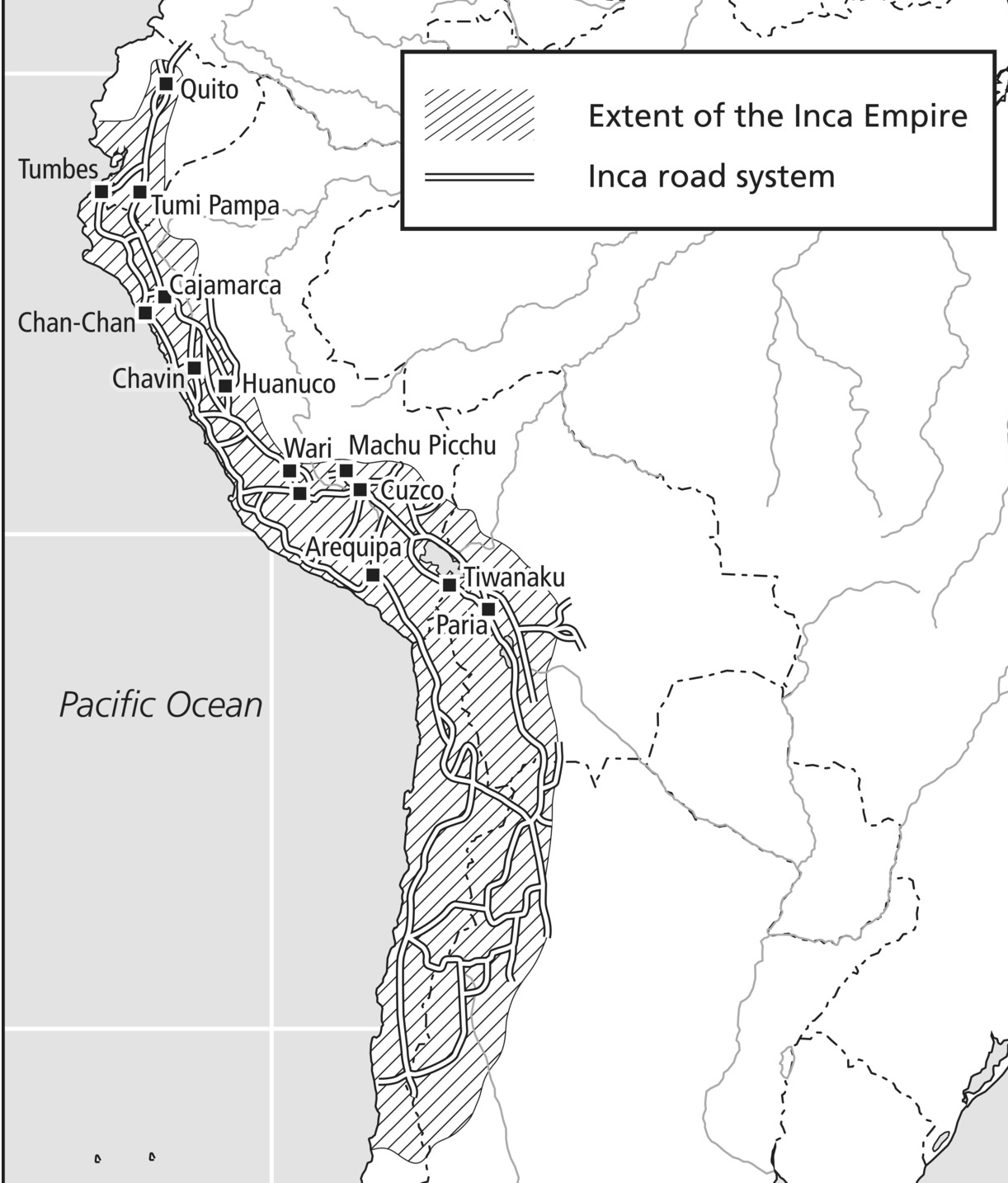
Inca Empire Map
The Inca Civilization flourished in ancient Peru between c. 1400 and 1533 CE. The Inca Empire eventually extended across western South America from Quito in the north to Santiago in the south. It was the largest empire ever seen in the Americas and the largest in the world at that time.
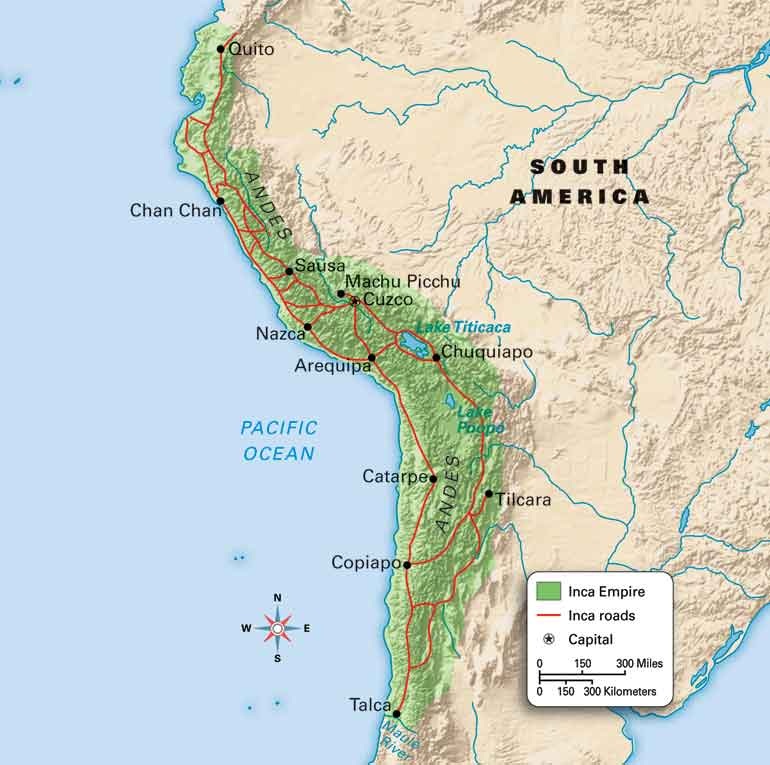
Map of the Inca Empire Museum of Peru The Incas
Machu Picchu, site of ancient Inca ruins located about 50 miles (80 km) northwest of Cuzco, Peru, in the Cordillera de Vilcabamba of the Andes Mountains. It is perched above the Urubamba River valley in a narrow saddle between two sharp peaks—Machu Picchu ("Old Peak") and Huayna Picchu ("New Peak")—at an elevation of 7,710 feet (2,350 metres).
Map of the Inca Empire (1525 CE) over the current political map of the
The most beautiful and impressive ancient Inca ruins in the world, Machu Pichu was rediscovered in 1911 by Hawaiian historian Hiram after it lay hidden for centuries above the Urubamba Valley. The "Lost City of the Incas" is invisible from below and completely self-contained, surrounded by agricultural terraces and watered by natural springs.
Inca Empire at its territorial peak (1532) [1507 × 2023] MapPorn
The Inca Empire (also known as the Incan Empire and the Inka Empire ), called Tawantinsuyu by its subjects ( Quechua for the " Realm of the Four Parts " [a] ), was the largest empire in pre-Columbian America. [4] The administrative, political, and military center of the empire was in the city of Cusco.
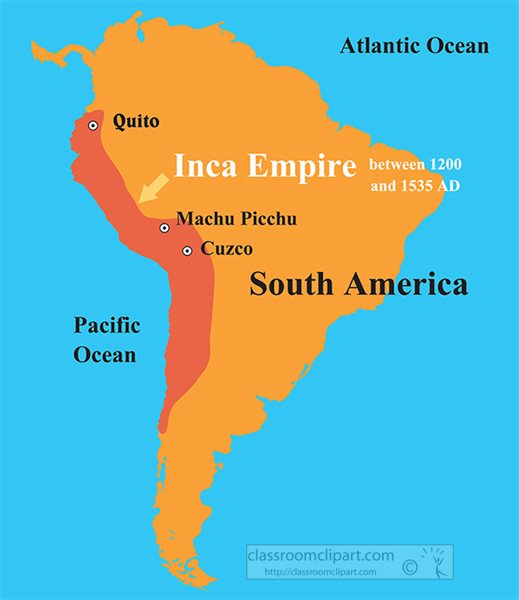
Early Civilizations 101 The Inca MozartCultures
The Incas Maps. Click on the pictures Empire expansionism: Road System Territorial division